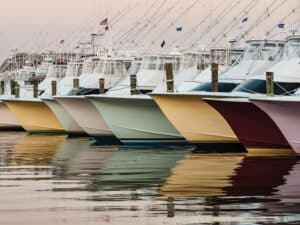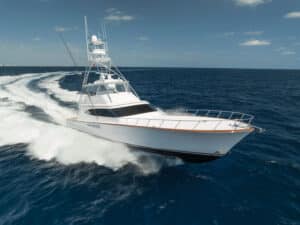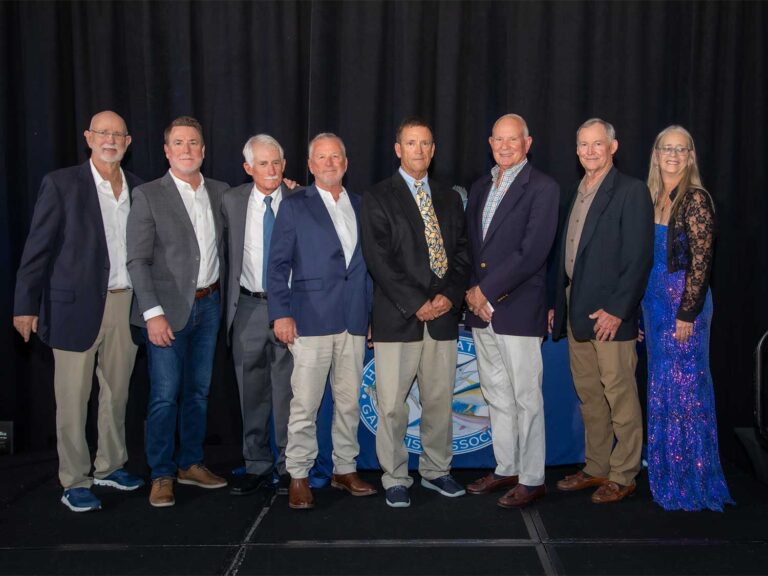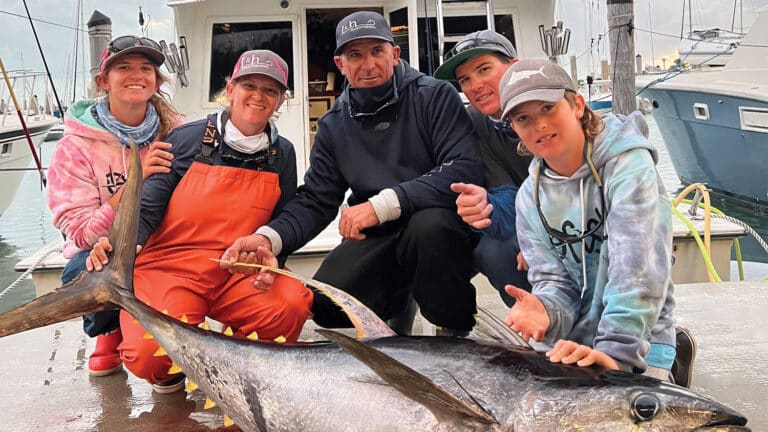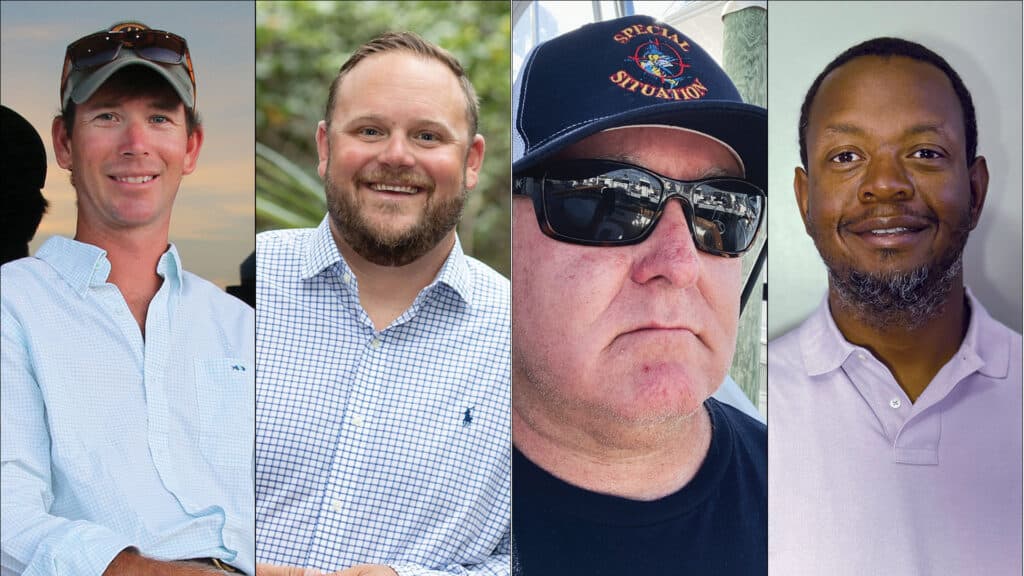
Capt. Ryan Easterling, Cold Motion, Mobile, Alabama
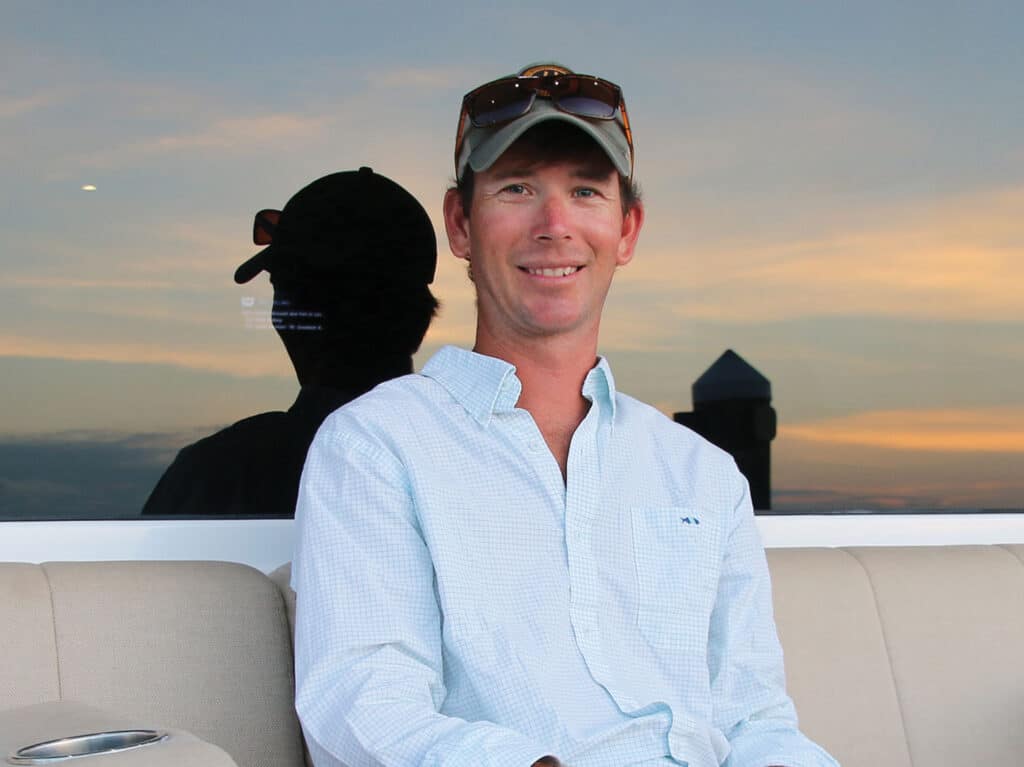
Looking back, it’s the sum of all my travels, encounters, fishing experiences, and even miscalculations.
Maintenance and preparation are always at the forefront, and I never miss an opportunity to learn. However, we are going into our third season since installing the Omni sonar, which has drastically changed how I run the boat. What it does is enable you to be much more efficient and allows you to really capitalize on your opportunities. Everyone on our boat is fully engaged with commentary from the helm; it’s a lot of fun, although I do miss the days when my eyes were glued to the right teaser instead of the display.
Capt. John Van Dellen, Singularis, Jupiter, Florida
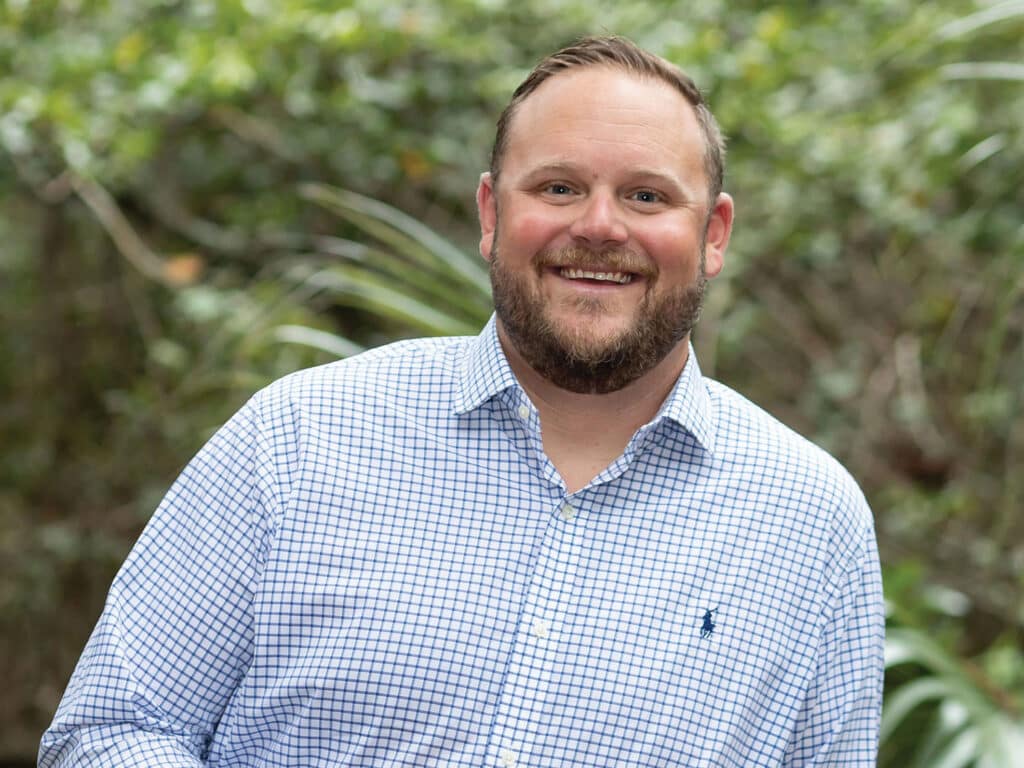
Many years and many boats ago, I was cruising south in the Intracoastal Waterway just north of Coinjock, North Carolina. I had been through the same stretch a few weeks prior and wasn’t aware that while I was gone, a heavy tidal flow had occurred that changed the channel depth, and I slid the boat right into the mud. From this incident, I learned that you should never assume that things are the same when navigating areas such as the ICW and inlets that are prone to shoaling and frequent changes. Local knowledge and research before every day on the water is key to a safe and enjoyable trip.
Capt. Tucker Colquhoun, Special Situation, Palm Beach, Florida
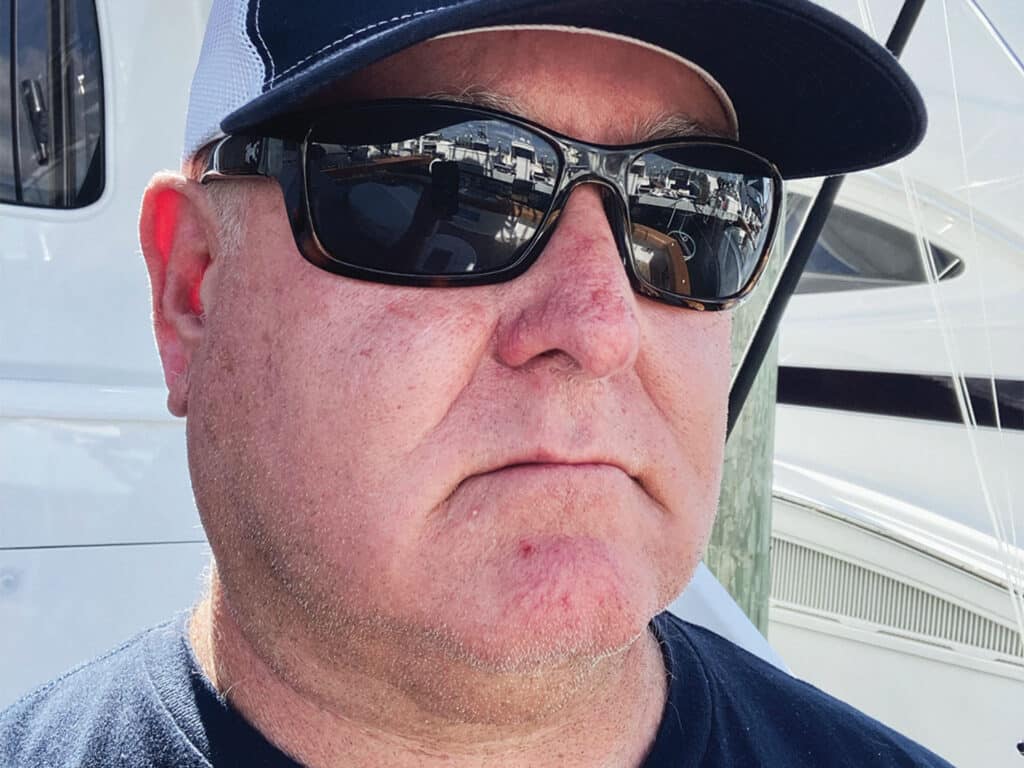
As I was pulling into the Los Sueños marina after a day of fishing, I took the engines out of gear, but nothing happened. I tried reverse, but I still kept going in forward. I shut off the engines and was heading straight toward a motoryacht. Eventually, I figured out that someone had thrown a jacket under the helm and onto the backup-controls remote. Luckily for me, I was able to shut off the remote and restart the engines, just in time to avoid a collision. Ever since then, before I go into any close-quarters situation, I stop the boat and put both engines in reverse for a few seconds to be sure that I have total control of my vessel.
Read Next: Check out Karl Anderson’s feature on handling close calls at sea.
Capt. Ben Sharpe, Sea Major Charters, Key West, Florida

The sport-fishing community is notoriously known for having a “back down first” approach, which usually ends with a miserable crew when backing up-sea. The naivety of it all makes me cringe: Are we taking pride in destroying boats and putting our crews in dangerous situations? It wasn’t until I fished with Capt. Cory Gillespie that it clicked, and I learned the method of the turn. Turning on fish will not only give you a better shot at multiples, but it will also quickly close the distance on fish. Changing tactics makes me a better captain, cuts fight times in half, and makes for a safer situation.


